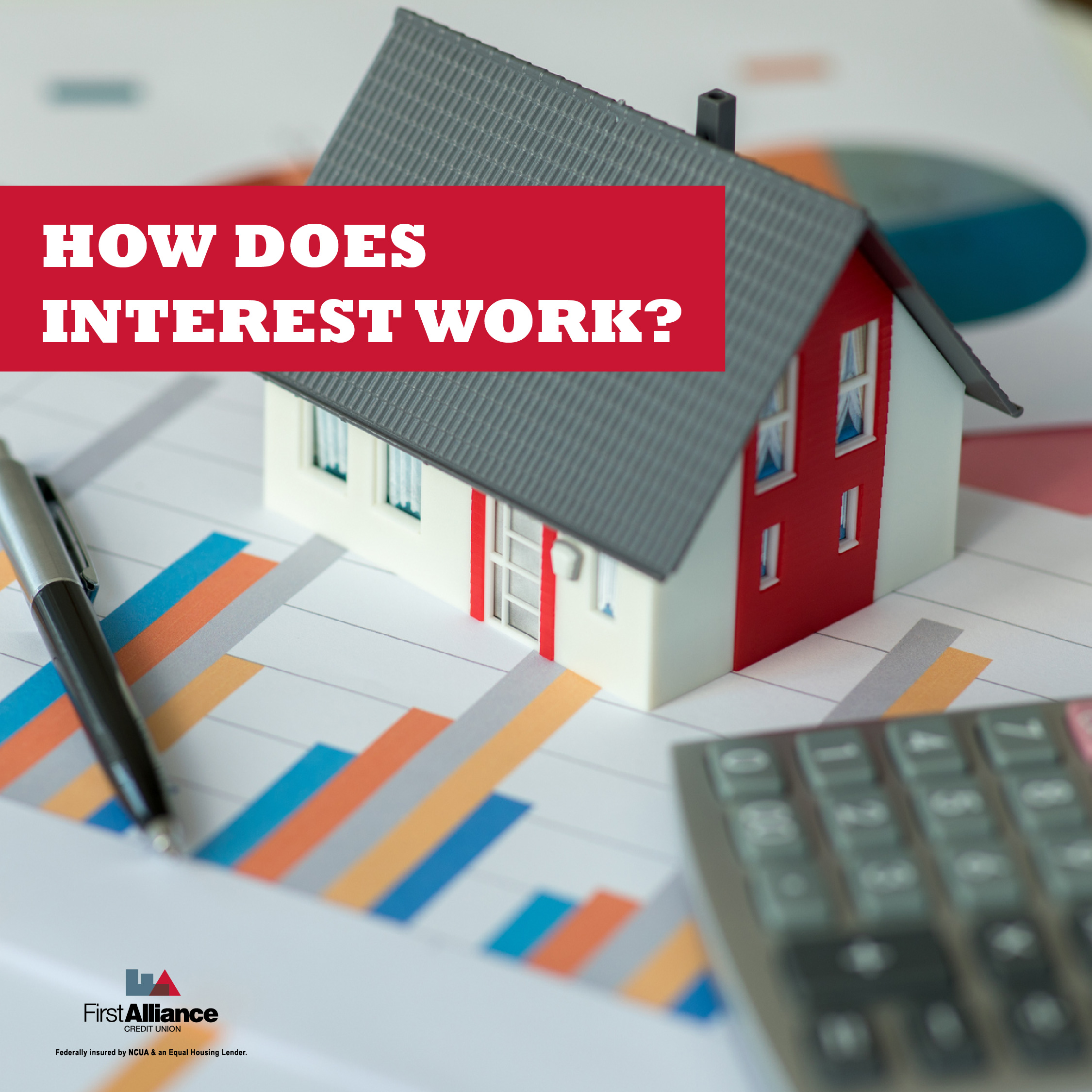Why Don’t I Make Money In My Savings Account?
A savings account offers several financial advantages, but a high interest rate usually isn’t one of them. Savings accounts with a half percent...

If you’ve ever opened up a savings account or taken out a loan, you’ve heard the term interest before. You also probably have a rough idea of what it means—if you have a loan, you have to pay more money back than what you borrowed. If you have a savings account, you get a bit of money back each month.
What exactly is interest, though? Why do you have to pay more interest in certain situations and less in others? Also, how are interest rates determined? In other words...

The concept of interest is actually pretty simple. It’s a fee that a borrower pays a lender as compensation for the risk of loaning their money out.
For example, let’s say you take out an auto loan to buy a car. After talking with a loan advisor at a financial institution, you get a loan of $6,000 at 5% interest, also known as the interest rate. What this means is that the financial institution is giving you $6,000 for the purposes of buying an automobile, and you in return are paying them five percent of that amount, or $300, in addition to repaying the $6,000.
The same principle works when you open a savings account, CD or IRA. When you put your money in any of these investment vehicles, you are basically setting it aside for the financial institution to use. In return, the financial institution pays you for the privilege of being able to use your money.
When calculating interest, you’ll also want to familiarize yourself with the terms APR and APY. APR stands for annual percentage rate, which is the annual rate of interest you will make on an investment.
APY stands for annual percentage yield, which not only takes into account the annual rate of interest, but also takes into account the frequency with which that interest is applied to your account. This is also known as compound interest.
It’s one thing to know what interest is. It’s another thing entirely to know how financial institutions set interest rates. The short answer is that a lot of factors intertwine to determine how interest rates are set. Among these factors are:
If you want to know more about the interest rates for savings accounts or loans, contact our team of experts at First Alliance Credit Union. Our advisors will ask you questions about your financial goals and then work with you to get the best possible interest rate.

A savings account offers several financial advantages, but a high interest rate usually isn’t one of them. Savings accounts with a half percent...

When you open a CD, you’re probably thinking about the higher interest rate you’ll get, and how much money you’ll have when the CD matures. However,...

When the Federal Reserve, aka the Fed, announces they’re raising interest rates, the news always focuses on whether the higher interest rates will...